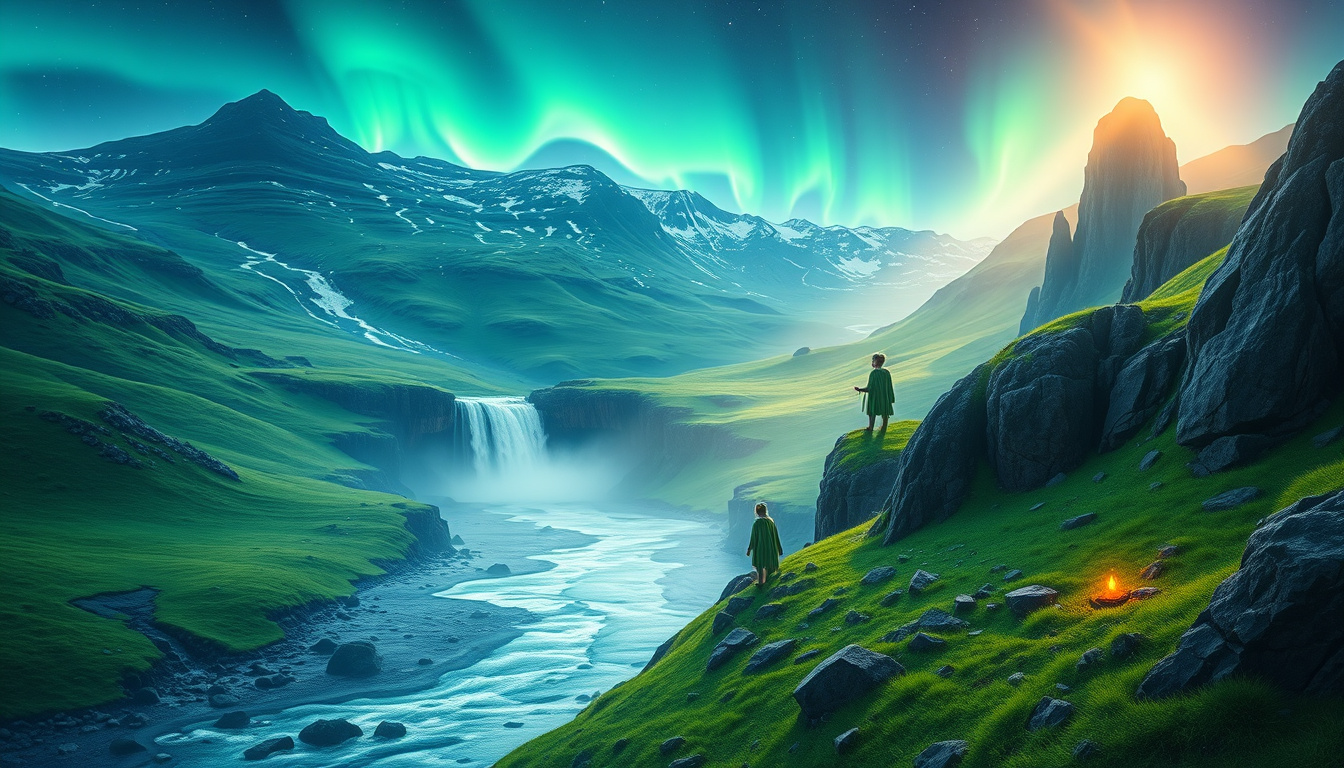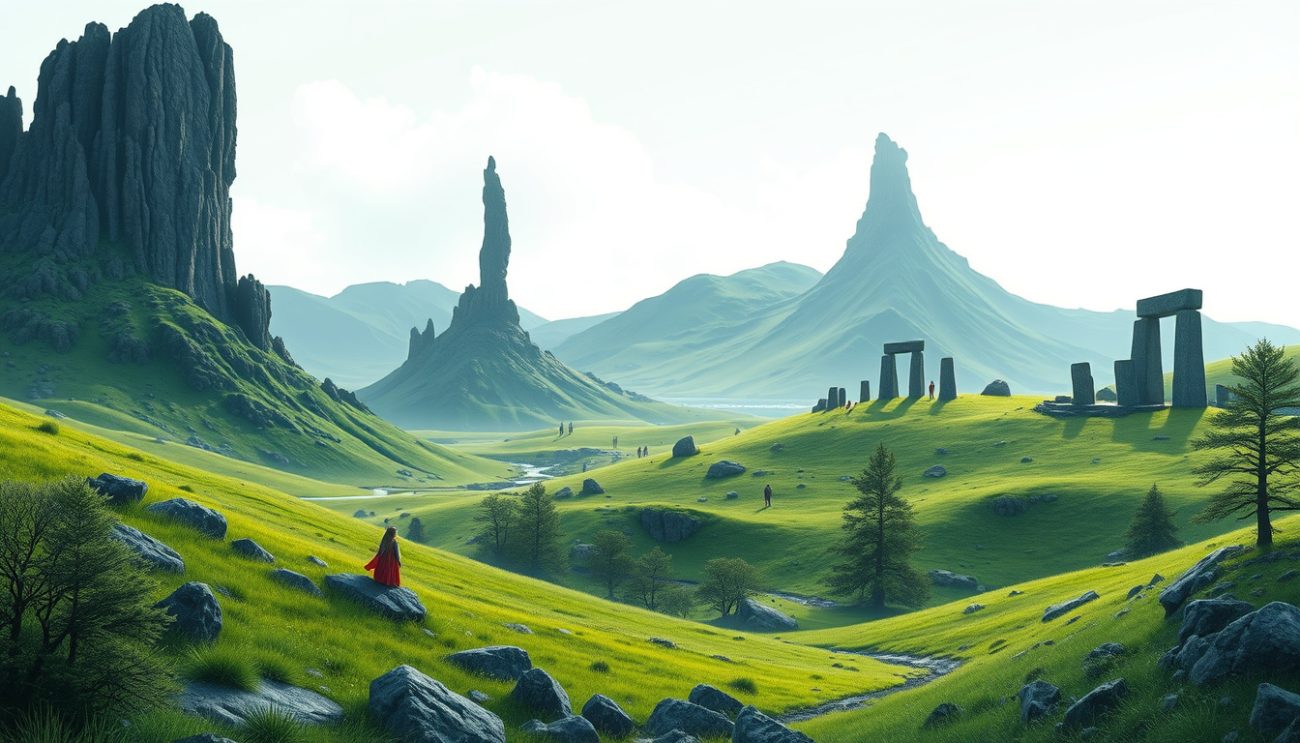In the heart of the North Atlantic lies Iceland, a land of stunning natural beauty, geothermal wonders, and a deep-seated belief in the unseen. The island is not just known for its dramatic landscapes but also for its rich tapestry of folklore—most notably, the widely accepted belief that elves inhabit this mystical realm. This phenomenon, often brushed off as mere superstition, is rooted in Iceland’s history, culture, and connection to nature. In this article, we delve into why Iceland believes in elves (and you should too), exploring their historical roots, cultural significance, enchanting stories, and the modern-day influence of elf belief in Icelandic life.

Key Takeaways
- Iceland’s belief in elves is deeply rooted in its historical and cultural context.
- Elves symbolize a connection to nature and heritage for many Icelanders.
- Stories and myths about elves reflect the rich folklore traditions of Iceland.
- The enchanting landscapes of Iceland contribute significantly to the belief in elves.
- Elf belief remains integral to modern Icelandic identity, influencing art, tourism, and community practices.
The Historical Roots of Elf Belief in Iceland
When delving into the fascinating realm of folklore and myth, few places capture the imagination quite like Iceland. The question of ‘Why Iceland Believes in Elves (And You Should Too)’ leads us to explore the historical roots of elf belief in this Nordic island. The origins date back to the early settlers, who brought their Norse mythology and legends that included a rich tapestry of supernatural beings. These enchanting tales were woven into the very fabric of Icelandic culture, as elves—often portrayed as hidden folk or elves—were believed to inhabit the country’s unique landscapes, particularly the volcanic rocks and lush valleys. This belief in elves reflects not only a deep connection to nature but also an embrace of the mystical elements that shape the Icelandic identity. Over centuries, as a fine balance of tradition and modern life developed, the storytelling of elves persisted, confirming their place in the national consciousness. Today, many Icelanders maintain a respectful reverence for these magical beings, intertwining their existence with the everyday, thereby invigorating the narrative that insists, ‘Why Iceland Believes in Elves (And You Should Too).’ Embracing this perspective allows visitors and locals alike to appreciate a vibrant landscape where reality and fantasy coexist seamlessly.
Cultural Significance of Elves in Icelandic Society
Iceland’s rich tapestry of folklore is deeply woven with stories of elves, and the belief in these mystical beings continues to flourish in contemporary society. When exploring why Iceland believes in elves, one must consider the profound cultural significance these creatures hold. Elves are thought to embody the spirit of nature, representing harmony between humans and the environment. This is particularly resonant in Iceland, where the striking landscapes of volcanic mountains, glaciers, and lush greenery provide a backdrop for these tales. The Icelandic people often reference the hidden folk, or ‘huldufólk’, emphasizing the importance of respecting the natural world. The prevalent belief in elves is not merely whimsical; it reflects a broader worldview that values tradition, community, and the interconnectedness of all living beings. Consequently, embracing the narrative of elves encourages a deeper appreciation for Icelandic heritage and the land itself. In fact, many Icelanders advocate for the preservation of elf habitats when planning construction projects, a testament to their commitment to the mythical as well as the physical. Thus, understanding why Iceland believes in elves is not just an exploration of folklore; it reveals insights into cultural identity, environmental stewardship, and the enduring power of myth in shaping societal values.
‘The world is full of magical things, patiently waiting for our wits to sharpen.’ — Bertrand Russell

Stories and Myths: The Elves of Iceland
Iceland, a land of enchanting landscapes and dramatic contrasts, is also home to a rich tapestry of folklore, particularly the captivating stories surrounding elves. The question of why Iceland believes in elves (and you should too) is deeply embedded in the cultural identity of the Icelandic people. For centuries, these mystical beings, often considered nature spirits or guardians of the earth, have played an integral role in the country’s folklore, shaping the collective imagination and cultural narratives. Many Icelanders maintain a profound respect for these mythical creatures, intertwined with their daily lives and the country’s natural beauty. Roads are sometimes rerouted to avoid disrupting the hidden habitats of elves, showcasing how deeply this belief is rooted in the societal psyche. Moreover, studies reveal that a significant portion of the population expresses a belief in the existence of elves, highlighting a unique blend of tradition, spirituality, and environmental consciousness. Thus, understanding the stories and myths surrounding elves in Iceland not only unveils the depths of its heritage but also invites you to embrace a more whimsical perspective on nature and existence—encouraging you to explore why Iceland believes in elves (and you should too).
The Role of Nature in Shaping Belief in Elves
Nature plays a pivotal role in shaping belief systems around the world, and Iceland is no exception, particularly when it comes to the country’s famous belief in elves. The enchanting landscapes filled with sweeping mountains, rugged coastlines, and mysterious lava fields create an otherworldly atmosphere that fosters a deep connection between the Icelandic people and their folklore. The harmonious integration of nature and mythology in Iceland has cultivated a rich narrative that not only captivates the imagination but also instills a sense of respect for the environment. When one contemplates Why Iceland Believes in Elves (And You Should Too), it becomes clear that the belief in these mythical beings is intertwined with the natural elements that surround them. The Icelandic elves are seen as guardians of the land, residing in the hidden realms of rocks and hills, which leads many locals to engage in practices that protect these natural spirits. Ultimately, this respect for nature and its integral role in the country’s belief in elves encourages both visitors and residents to cherish and protect the breathtaking beauty of Iceland.

How Elf Belief Influences Modern Icelandic Life
## How Elf Belief Influences Modern Icelandic Life
In Iceland, a nation rich in folklore and tradition, the belief in elves and hidden people significantly shapes the cultural landscape, underscoring the deep-rooted connection between the Icelandic people and their environment. This phenomenon prompts the question: \’Why does Iceland believe in elves (and you should too)?\’ The importance of these mythical beings can be seen in various aspects of daily life, from construction projects that incorporate respect for elf sites to customs that honor these enchanting creatures. For instance, when building new roads, Icelanders often consult with experts on elf habitats to avoid disturbing natural formations believed to be home to these beings. This respect for the unseen not only fosters a strong sense of community among Icelanders but also emphasizes the country’s commitment to preserving its unique landscape. The whimsical nature of elf belief also encourages a spirit of imagination and wonder among residents, resonating through art, literature, and tourism. By embracing such folklore, Iceland not only honors its heritage but also draws visitors seeking to understand and appreciate the cultural significance of these mythical stories. Thus, exploring why Iceland believes in elves reveals not just a quirky aspect of Icelandic charm but a profound cultural identity that intertwines the natural world and mystical folklore, inviting others to see the value in nurturing belief and imagination.
Frequently Asked Questions
What are the historical roots of elf belief in Iceland?
The belief in elves in Iceland dates back to ancient Norse mythology and pre-Christian traditions. These beliefs were intertwined with the natural landscape and were often associated with fertility, protection, and the spiritual world.
How do elves influence modern Icelandic culture?
Elves play a significant role in Icelandic culture today, influencing art, literature, and even tourism. Many Icelanders still hold onto these beliefs, which can be seen in how they approach construction and land preservation.
What are some popular stories and myths about elves in Iceland?
There are numerous stories and myths about elves in Iceland, with the most famous being the Huldufólk (hidden people) tales. These narratives often describe their harmonious relationship with nature and their interactions with humans, serving as cautionary tales or moral lessons.
How does nature shape the belief in elves in Iceland?
Nature is central to elf belief in Iceland. The country’s dramatic landscapes, including mountains, lava fields, and waterfalls, are often attributed to elf dwellings or realms, reinforcing the connection between the supernatural and the environment.
Why should someone believe in elves like the people of Iceland do?
Believing in elves can provide a deeper appreciation for nature and the environment. It reflects a sense of wonder, encourages cultural exploration, and fosters community ties. Embracing such beliefs can enrich one’s experience of Icelandic culture and heritage.
